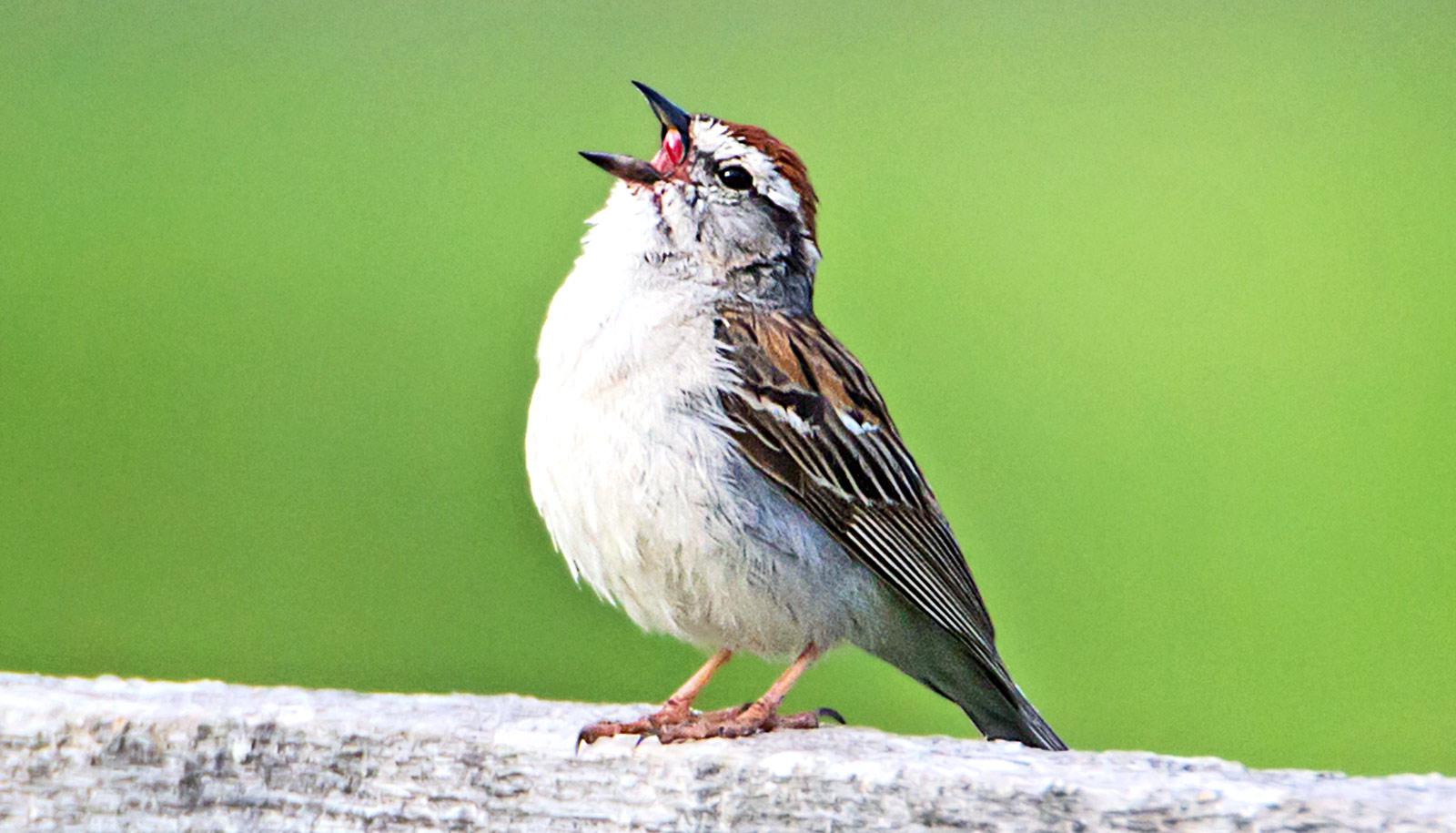Birders: Use ‘Chipper’ app to catalog songs for research

Amateur birders and citizen scientists can soon contribute to new research with an app called Chipper.
The app can help researchers better use crowdsourced fieldwork and audio recordings from bird enthusiasts to accelerate the progress of research on naturally occurring songbird behaviors.
Called Chipper for its ability to “chip” songs into easily measured syllables and notes, the app uses code developed by Abigail Searfoss, a graduate student at Vanderbilt University, to analyze audio collected using a variety of different personal recording devices.

The researchers detail the methodology and app in Methods in Ecology and Evolution.
“As hobbyists and citizen scientists become actively engaged in fieldwork and contribute findings online, researchers like us are increasingly looking to leverage those efforts of the general public,” says Searfoss.
Designed with a clean user interface, the app lets users load in audio recordings of birdsongs and easily visualize, segment, and measure each recording by manually adjusting slider buttons to change the amount of audible signal in each recording.
Once adjusted, the app automatically updates the segmentation of the birdsong—highlighting each individual syllable, note, and period of silence for subsequent measurements and comparisons against other recordings.
The tool was also named for its role in a larger project studying the long-range geographical patterns of the chipping sparrow that appears in the journal Animal Behaviour, says Nicole Creanza, director of the Creanza laboratory and assistant professor of biological sciences.
In that study, the researchers were able to upload crowdsourced audio data, from databases such as Macaulay Library, into Chipper to analyze 820 field-based audio recordings of the simple chipping sparrow song. They found significant correlations between song features and geographical distance associated with longitude, as well as diverse song types across the species’ range.
The app enabled the team to find a first for chipping sparrows: Cultural differences in two genetically indistinguishable, yet geographically separate, groups of chipping sparrows.
“With a world of information at their fingertips, we wanted to provide a tool that would do some of the finer research legwork for the people contributing data,” says Creanza. “We hope other institutions and organizations will be able to use Chipper for their research projects in the future.”
For the chipping sparrow study, Searfoss received support from the National Science Foundation Graduate Research Fellowship Program and additional support from Vanderbilt.
Source: Vanderbilt University
The post Birders: Use ‘Chipper’ app to catalog songs for research appeared first on Futurity.
